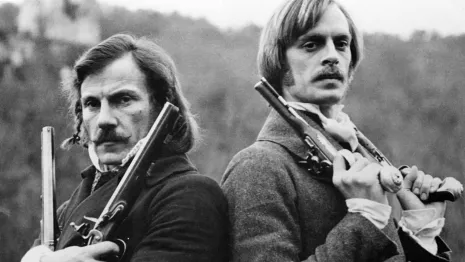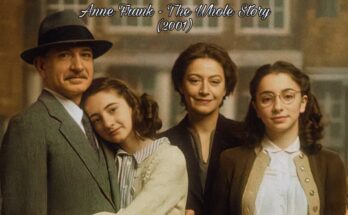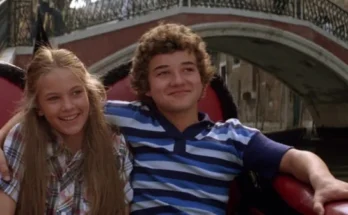Genre: Historical Drama | Period Piece | War | Debut Film
The Duellists is a striking, meticulously crafted historical drama that announced the arrival of Ridley Scott as a visual stylist to watch. Released in 1977 as Scott’s feature directorial debut, this film is a fascinating meditation on honor, obsession, and the futility of violence—wrapped in the lush, painterly beauty that would become a hallmark of his career.
Based on Joseph Conrad’s short story The Duel, the film is set during the Napoleonic Wars and follows the bizarre, decades-long feud between two French cavalry officers: the impulsive, hot-headed Lieutenant Feraud (Harvey Keitel) and the more reserved, reluctant Lieutenant d’Hubert (Keith Carradine).
The story begins with a trivial incident—a perceived slight against Feraud’s honor—sparking the first in a series of duels that will consume both men’s lives for years. Every time d’Hubert tries to move on with his military career and personal life, Feraud reappears like a ghost demanding satisfaction. The duels are fought with sabers, rapiers, and pistols, in forests, snowy fields, and candlelit rooms, each one filmed with nerve-wracking realism.
What makes The Duellists so compelling is that its conflict is at once absurd and deeply human. D’Hubert doesn’t hate Feraud—he simply can’t escape him. Their endless battles become a symbol of pride taken to a self-destructive extreme, where neither man can back down without losing the identity that defines him. In the backdrop, the tides of European history shift from Napoleon’s rise to his fall, but the feud between these two men remains stubbornly frozen in time.
Visually, The Duellists is breathtaking. Ridley Scott and cinematographer Frank Tidy frame each shot like an oil painting, inspired by the works of 19th-century masters. The use of natural light—sunlight through mist, candle flames flickering in dark rooms—gives the film an authenticity that’s both romantic and grim. The costumes and period details are lavish yet understated, immersing the viewer in an era when honor codes and rigid social rules governed life and death.
Harvey Keitel and Keith Carradine make an unusual but fascinating pair: Keitel bristles with unpredictable menace as Feraud, while Carradine’s d’Hubert radiates weary decency—a man forced to fight not for pride, but for survival and self-respect. Their dynamic is what gives the film its quiet power: a dance of obsession and reluctant duty that outlasts empires.
Unlike some sweeping historical epics, The Duellists is refreshingly lean—just under 100 minutes—and yet feels epic in scope. It’s a haunting exploration of how trivial grudges can calcify into lifelong burdens, how men cling to codes of honor long after they’ve become meaningless relics.
More than forty years later, The Duellists remains a remarkable first film—an early sign of Ridley Scott’s eye for atmosphere, his gift for world-building, and his fascination with the collision between human stubbornness and larger historical forces. It’s not just a costume drama about two men fighting: it’s a timeless parable about how pride can become a prison, and how sometimes the deadliest enemies are the ones we invent for ourselves.



